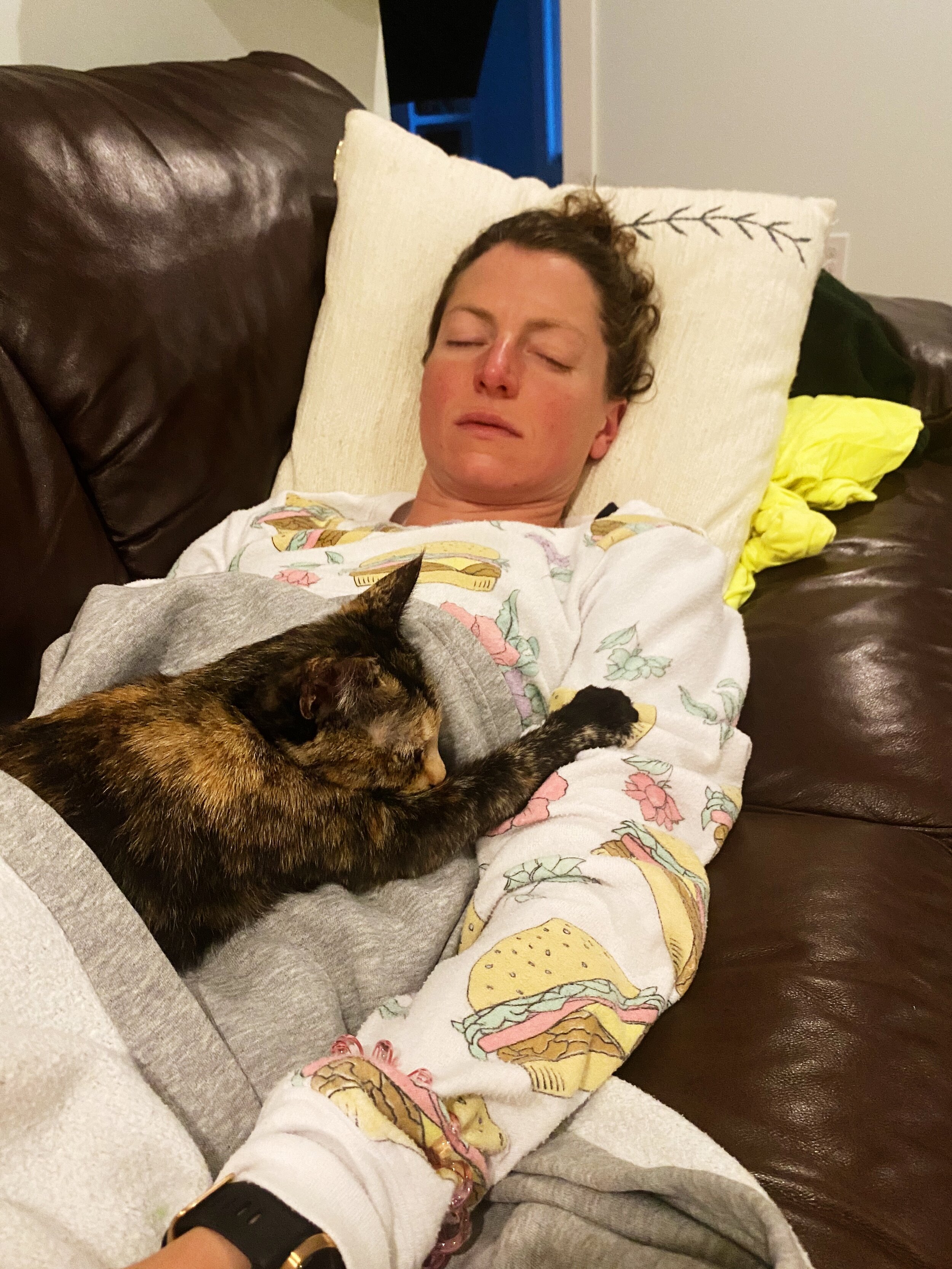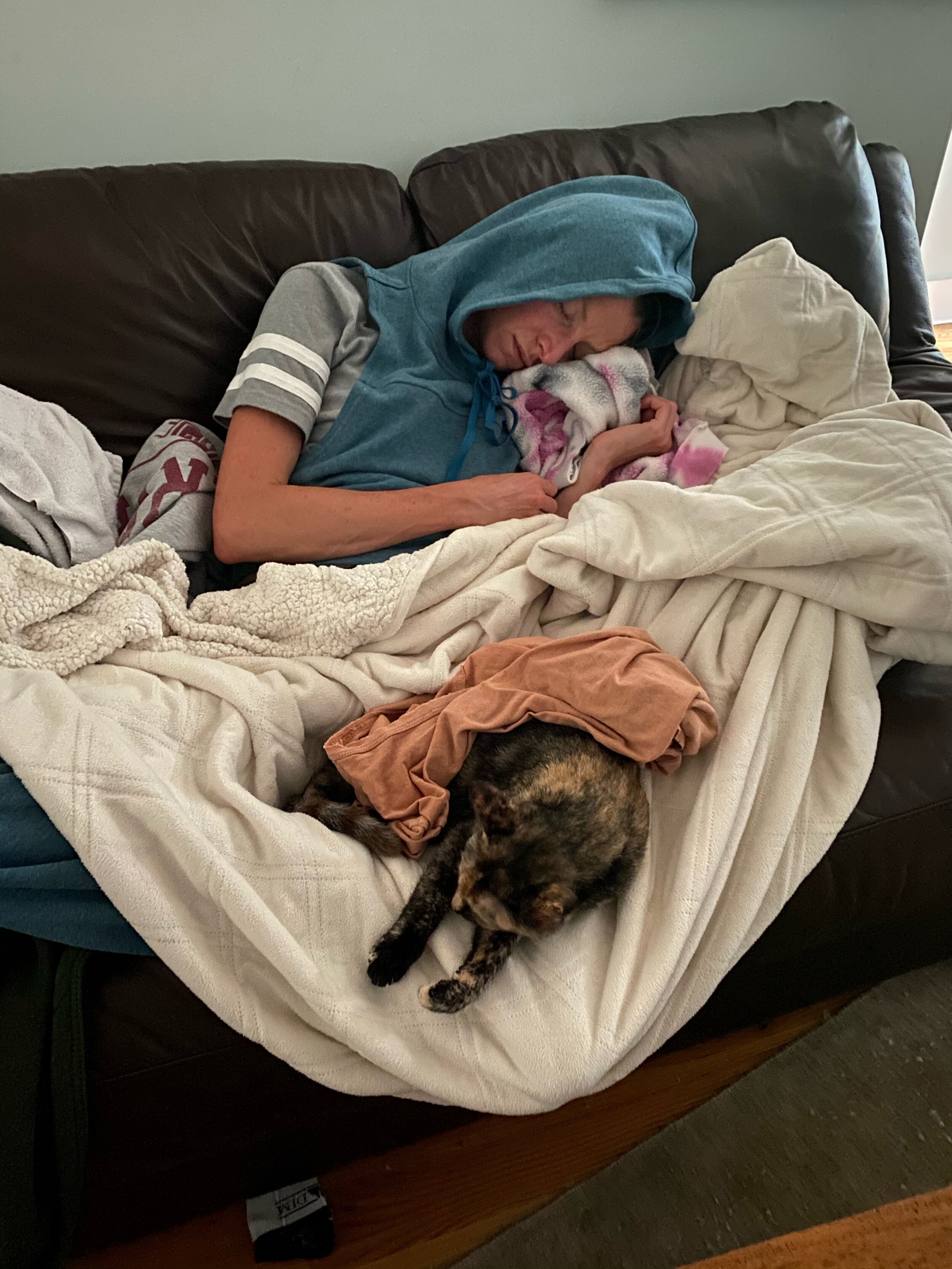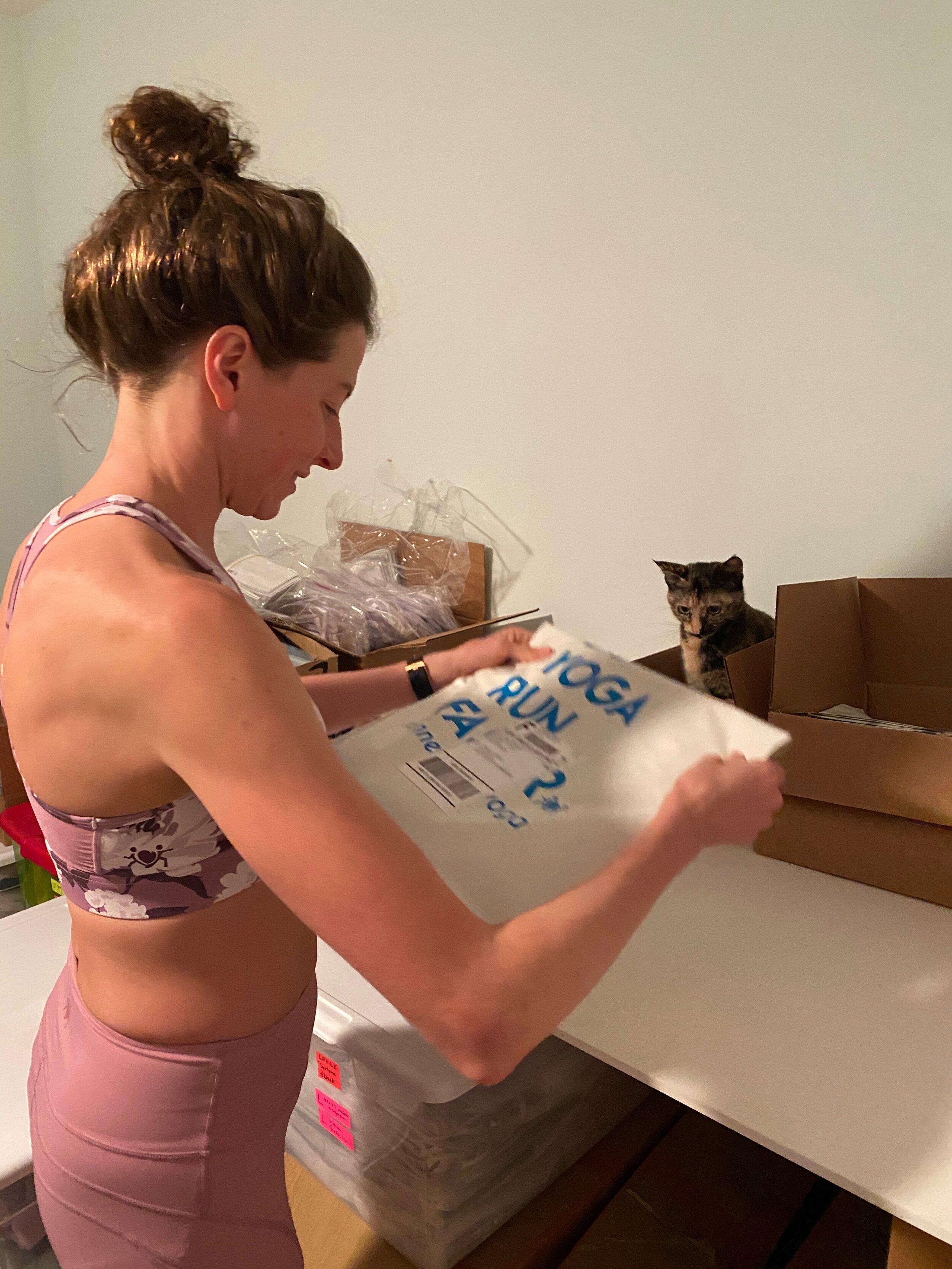5 Ways to Destress at the Beginning of the School Year
Whether you are a student, a teacher, or a parent, the beginning of the school year is often one of the more stressful times of the year. This might be especially true this particular year, when so many of us have been online for nearly a year and a half and have settled into new routines as a result. Do we even remember how to do an in-person “back to school,” let alone one that feels like an odd mix of trepidation (is this even safe?) and enthusiasm for a “return to (sort of) normal”? How do we do this “back to school” thing again? It has been a while for all of us.
I know that I myself, during my first day of class, had a deja vu moment of “wait, did I really do an entire school year fully online? Was that actually not last spring where things moved online mid-way through?” (Answer: you knew the answer to this one already though—yes, self, it really HAS been nearly a full school year and a half since everything was in person.) So, regardless of the exact amount of time since we did the whole in-person thing, here we are, I guess, and it certainly hasn’t gotten easier to navigate the potential stress of this time.
Pre-pandemic, no matter how many times I had a first day or week back to teaching, this return to school—especially the first full week—always had me feeling a little like I was hit by a steamroller. The surprising physical energy of managing a classroom is something that other teachers will surely be familiar with. In my post-grad teaching fellowship at UVa, which meant teaching 3 college English courses on top of my fitness teaching load, I remember that on Thursdays, which just tended to be the day that everything would “hit me” so to speak, I would hardly have the energy to talk to anybody: the effort of getting all my thoughts in my brain out of my mouth was just too much! New teachers, if you are reading this: please trust me that it DOES get easier, even if nobody has told you that yet. (Nobody told me that!) When I very first starting teaching yoga, my ONE weekly yoga class would practically wipe me out, not from the physical practice, but the mental energy of juggling the many simultaneous things that were happening: sequencing the class, monitoring how everyone was doing, adjusting the sequencing accordingly (FYI: one of my favorite parts of teaching now is how I spontaneously improvise as I go along—teaching, once you have experience, is a little like being a specialized performance artist). But, way back in the day, after I taught that one Monday evening class, I was really a little zapped: post-yoga, I would always go to Boylan Heights, a hamburger place on the Corner in Charlottesville, and buy myself a hamburger for dinner, which also cost basically what I was paid for that one yoga class. It was worth it, no matter how many times doing that I actually thought “this hamburger IS my yoga class that I just taught.”
Anyways, to make a long story short: if you are a new teacher, keep going. It will get easier. That said, no matter how much experience you have, and no matter your role within the back-to-school time, that time can just be a bit of a shock to the system. Here are my tips for managing that jolt, whether you are a teacher, parent, or student.
“If only I could just bring my cat too.” Butters knows the importance of being prepared but also does her best to keep Mom from leaving the house by sitting on her bag.
1. Set out what you need for the day the night before.
I make sure I have that day’s beverages (whatever I take with me to teaching), the day’s outfit, and my bag all packed and ready to go. This just makes me relax since I know I won’t be dashing around to find something in the morning.
Funny side story: when I was little, I absolutely HATED being late for morning swim practice in the summer. My dad really could care less if he got me there on time: if I got there at 7:10 and practice had started at 7, that was fine with him but NOT with 12-year old me as I really wanted to be there for the actual warmup and it was disappointing to me to not be there for that. I basically would have to get my dad out of bed and beg him to hurry up and not dawdle so that I could MAYBE be on time and not miss the whole warmup. Nothing I did would make my dad hurry any faster, so I did absolutely everything I could so that I at least would be extremely fast in the morning. This led to me always setting out my suit, clothes I’d wear on top, and packing my swim bag the night before, but I also then got the bright idea that I could put my Eggo waffles in the toaster the night before too, and then just push the button down in the morning to have just that much more speed and efficiency in my morning prep. The waffles part turned out to not work very well—they were very soggy. So, hopefully you are not a 12-year old without control over your morning ride, but at least this may give you some ideas for how to streamline your morning, minus the frozen waffles! (Lesson here: once you have it prepared, let it go and do not worry.)
It is almost always easier to prepare fully the night before, rather than to dash around like a maniac in the morning, so get yourself ready the best you can (and realize what you actually cannot do ahead of time, like put your waffles in the toaster) to set yourself up for a more stress-free morning.
Boo Boo insisted that he be the model for the snacks photo. I love the Perfect Snacks peanut butter cups, and any of the nut butter filled or coffee-flavored Clif Bars in particular!
2. Have a regular schedule.
The first couple weeks are always about finding out when you do what. How long does the homework for X class take? How can you most effectively use your time in between classes? What are you going to have for lunch and where are you going to get said lunch from? Which brings me to my next point….
3. Have good snacks on hand for when you are rushing around.
You know those Snickers commercials where people “aren’t themselves” when they are hungry? It really is kind of true. (I am thankful for my mom buying my husband those mini pizzas from CostCo because they keep him from being hangry.) Keep your energy up by ensuring you have some enjoyable snacks for yourself, preferably ones that are easily portable or can be tossed in your bag. I like to keep a mix of various protein bars around for when I am working and need a snack but don’t want to interrupt the flow I’ve got going to go get one. Along those same lines, be sure to stay hydrated and carry a water bottle or a portable coffee mug with you.
4. Allow yourself some time, however much you personally need, to decompress at night before bed.
Above: Butters keeps me company for nighttime Netflix watching as well as mid-day nap breaks.
My husband is capable of flipping an internal switch from “intense computer work” to “deep sleep” within minutes. I would dare say that this is not true for most people. Give yourself some dedicated downtime before bed, whether this is a short stretching routine, or a nice Netflix show, or perhaps some Netflix with some stretching done as you watch. I like to use my Chirp Wheel (11 out of 10 recommend those, especially if you tend to have a tight back) for a few minutes while I watch TV at night.
My current not-at-all-guilty-about-it “guilty pleasure” is watching the Netflix show Reign which is about Mary, Queen of Scots, but filmed in what I would describe as "spicy but in a Hilary Duff type of way”—my husband told me that this show is filmed for the 17-year old girl, but I am 1000% enjoying it, even if the choices of the background music for various scenes in the first few episodes sometimes made me laugh to myself (I am remembering the Bastille song “Pompeii”—”and if you cloooosee your eyes, does it allllmost feel like you’ve been here before"?”—during a sword fight and it was just not the right choice). So, find something that perhaps allows your brain to relax, and (I know this is sometimes hard) will also be able to turn off so that you don’t get too enthralled and just keep going!
5. Realize when you are not being productive with your work and take a break.
Above: Butters supervising the packing of Runners Love Yoga packages for the post office from her special box in the inventory room (she loves watching me arrange packages AND watching the label printer spit out labels), Butters’ perch at Cutaway USA HQ, and last but not least, Butters inspects Mom’s arranging of a flatlay photo.
This was actually one of the most valuable lessons I learned in my early years of grad school. Stop before you are totally cracked, because it will take that much longer for you to recover before you can be productive again. You will be a happier, better-functioning human if you don’t completely wreck yourself on a daily or weekly basis. (This advice applies way beyond the first weeks of the school year too.) My “favorite” story about this, which I know I have recounted in another blog about dealing with the stress of finals week, is about the time in my first semester of grad school where I wrote an actually very good (my professor wanted me to eventually publish it) 17 page paper on medieval marginal annotations. I wrote this paper in one sitting, over the course of something in the 7-9 hour range, in ONE DAY. It was a beautiful paper. I did not leave my booth at the Notre Dame student center except to go to the bathroom. I also did not eat anything except a box of Kashi bars, which to this day I can barely stand to look at because they remind me of this intense paper writing session. I could not do any work for several days afterwards because my brain was so fried. So, do not do that. Work hard, but then also give the mind a rest so it can work better later. (The brain is really a muscle of sorts like any other muscle—you don’t go run a marathon and then run another marathon the next day, but you train for a marathon, then take a break to recover so you are stronger for the next marathon.) Ways that I took breaks in college: read a magazine or something not for school, go on a nice walk somewhere pretty or otherwise spend time in nature, treat myself to a Starbucks drink, or if I had more time, OMG, I truly loved going to the mall, which was away from the Notre Dame campus enough that I felt like I was “getting away” and was absolutely glorious. So, remember that taking a break sometimes means a break from your usual scenery, which can go a long way to refresh your mind.
I hope these 5 key tips help you as you navigate the beginning of the school year during this unusual pandemic time! Above all, be nice to yourself and remember that you are doing a great job. Namaste!
P.S. Bonus tip number 6 is definitely to adopt a cat. ;)








